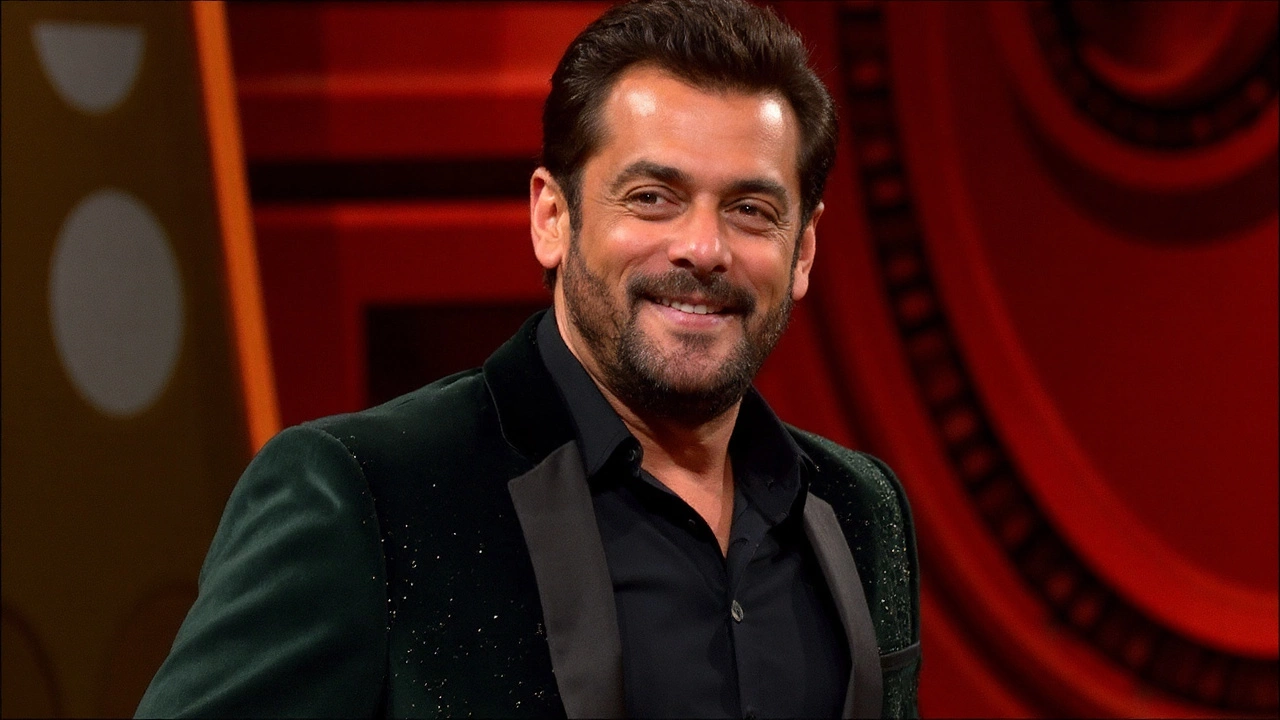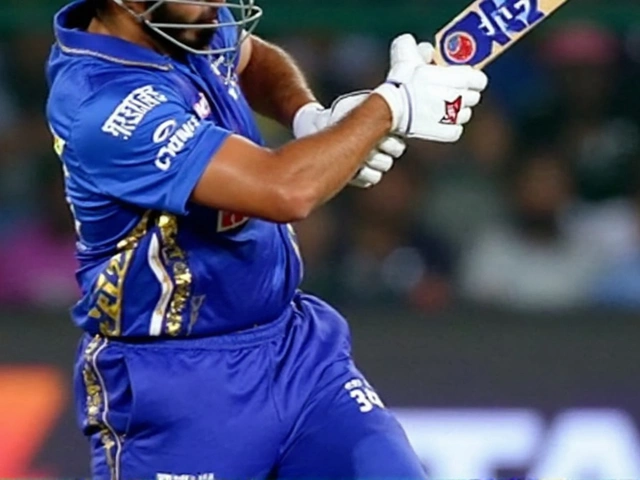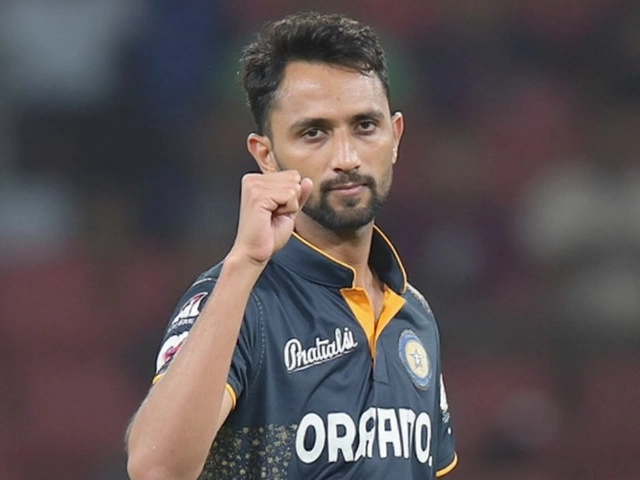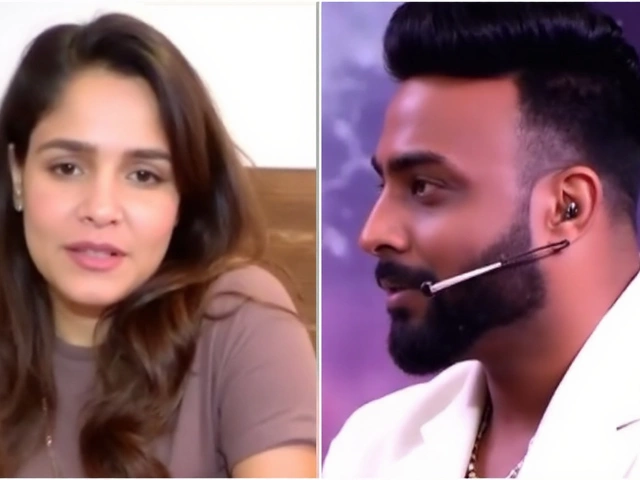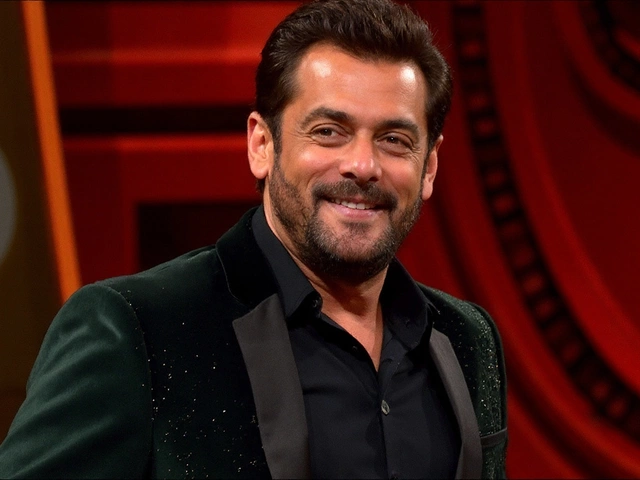Eighteen strangers, one house, zero phones: the country’s most-watched social experiment is back. Bigg Boss 19 opened on August 24, 2025, with Salman Khan once again taking the stage and reminding everyone why this format still pulls prime-time numbers in a streaming-obsessed world. The cast is a sharp blend this year—television heavyweights, a hit-making composer with a very public family split, a 21-year-old actor who grew up onscreen, and creators who built their fame on short videos now stepping into a 24/7 long game.
The promise is simple and cruel: live together, compete, be judged by both housemates and the audience, and survive week after week of nominations, tasks, and public votes. The house is the pressure cooker, the weekend is the reckoning, and every offhand quip can become tomorrow’s headline. With 18 contestants inside, the producers have loaded the season with personalities designed to clash and collude in equal measure.
Salman’s return matters. His weekend debriefs can calm a spiral or push a storyline into overdrive. Years in, he reads the room faster than the contestants do, and he knows when to let a fight burn and when to douse it. That rhythm—daily chaos, weekend correction—has become the show’s heartbeat.
Who’s in the Bigg Boss 19 house?
Gaurav Khanna is the marquee TV name this season. He’s best known for playing Anuj Kapadia in Anupamaa, a role that turned him into a household name across urban and small-town audiences. He’s been acting for over two decades across genres, which means he understands pacing, camera moods, and when to step forward or pull back. He also just won Celebrity MasterChef India, so he’s bringing kitchen chops to a house where food is both fuel and a battleground. It’s his first reality show, and that’s the hook—veteran actor, rookie contestant.
Amaal Malik enters with a different kind of firepower—songs that people hum and a family story that people discuss. The composer behind several Bollywood earworms, he’s often frank online and has recently made headlines for distancing himself from his own musical clan. Inside the house, that candor could cut two ways: audiences reward authenticity, but blunt talk can turn nominations into a weekly habit. He also understands the grind of deadlines and collaboration, which translates surprisingly well to group tasks.
Ashnoor Kaur, all of 21, has been on sets since age five. She jumped from Jhansi Ki Rani to Yeh Rishta Kya Kehlata Hai to Patiala Babes and even popped up in Sanju and Manmarziyaan. That early start creates a weird advantage—she’s comfortable under constant observation and knows how to reset after a bad day. Younger contestants usually have the stamina for tasks and the social agility to switch gears fast. Expect her to build alliances with creators and younger TV faces before testing the waters with older players.
Zeishan Quadri brings the writer’s brain. He co-wrote Gangs of Wasseypur, acted, and directed, which means he’s spent years breaking down characters and motivations. In a house built on shifting loyalties, the person who can map patterns early often controls the temperature of the room. He’s outspoken off-camera; that won’t vanish on-camera. If he keeps his temper in check, he could be a nomination-proof narrator for weeks.
The digital wave is strong this year. Awez Darbar, one of India’s most-followed content creators, has long turned choreographed moments into viral currency. Bigg Boss is the opposite of a tidy 30-second video—it’s messy, unscripted, and slow-burn. Watching Awez adapt from edits and retakes to raw, continuous exposure will be half the fun. He walks in with a massive fan base and a family link to Gauahar Khan, a former winner who mastered both gameplay and dignity. That shadow can be motivation or pressure.
Nagma Mirajkar is another creator with serious reach. She knows how to build engagement, pivot tone, and recover from online storms—skills that matter when your every move is fodder for social media. Inside, she’ll need more than aesthetics and timing; she’ll need patience in group tasks, strategic honesty in nominations, and a thicker skin for kitchen politics. If she clicks with Awez, they could become a power pair in the first fortnight.
Tanya Mittal straddles content and entrepreneurship. That combination can be lethal in a house where resource management—time, food, attention—is basically a daily pitch. Entrepreneurs tend to ask the right questions under stress and course-correct without ego. If she stays flexible, she’ll avoid early elimination traps like “floater” tags or “invisible in the edit.”
Nehal Chudasama brings pageant discipline. Crowned Miss Diva Gujarat in 2018, she’s trained to keep posture under pressure, speak with clarity, and survive long days with little sleep. Pageant alumni usually do well in the first month because they keep clean slates, offer help, and avoid needless fights. The real test is week five, when patience thins and factions harden.
Kunickaa Sadanand is the multi-hyphenate in the room—actor, lawyer, entrepreneur, social activist. She’s acted in films like Beta and Gumraah and seen enough of the industry to know when decorum helps and when to throw a sharper elbow. Legal training isn’t just a line on her resume; it means she can argue without losing the plot, a handy skill on nomination nights and rule disputes.
Abhishek Bajaj rounds out the known names with a TV-to-film bridge—Jubilee Talkies and Silsila Pyaar Ka on television, and Student of the Year 2, Babli Bouncer, and Chandigarh Kare Aashiqui on the big screen. He knows how to hold presence in ensemble setups and can switch from charming to competitive without looking forced. In a house full of extroverts, that balance can keep him safe while he quietly builds numbers.
That’s only part of the 18. The makers have filled the rest of the roster with contrasting archetypes—loud extroverts to trigger early fireworks, quiet strategists who bloom after week two, and a few wild cards who don’t fit any box. That mix is intentional. People come for their favorite faces and stay for the strangers who surprise them.
What will each camp bring? TV actors are usually punctual, task-driven, and aware of optics—they know how a sloppy moment can haunt them. Musicians and writers often bring vulnerability and edge; they’re good with confessions and unafraid of unpopular opinions. Creators understand audience sentiment in real time and react fast, sometimes too fast. Pageant and fashion professionals are game in chores, and they rarely crack under taunts. Put them in one kitchen and watch the sparks fly.
Why this lineup matters
Bigg Boss reflects the entertainment industry’s shifting center. A decade ago, TV names carried the season. Then came a phase where controversies did the heavy lifting. Now, the pie is split—television gives stability, film lends glamor and curiosity, and digital brings guaranteed engagement. Casting all three together is the safest way to build both ratings and online chatter, especially in the first four weeks when the show sets its tone.
There’s also the generational split. You’ve got a 21-year-old who came of age in an always-online world living with veterans who grew up in a slower media cycle. They’ll disagree on what’s “too much,” what’s “content,” and what crosses a line. Those debates—trivial in the moment—shape public perception more than any task. If a contestant frames a fight as a values clash instead of a kitchen spat, the weekend conversation changes.
Expect immediate pressure points. Food is always the first battleground: who cooks, who cleans, and who pretends to help while staying out of frame. Chores reveal entitlement fast. Sleep cycles come next; early risers and night owls hate each other by day three. Then nominations land, and the social map gets drawn—older TV stars usually huddle for safety, creators band together for votes, and the outliers float until someone needs a tie-breaker.
Where does Salman fit into this? He’s the referee and the wildcard. He calls out hypocrisy without draining the fun, and he gives second chances when a contestant acknowledges the mess. Contestants who resist feedback tend to spiral; those who course-correct with humility often get fresh momentum the next week. His monologues can flip public opinion faster than any task edit.
Tasks will still be the engine. Physical games expose alliances because you need spotters and backups. Strategy games expose trust because you need honest communication. And secret tasks—when they show up—test who can lie with a straight face and still cook dinner next to the person they deceived. The best players keep losses quiet and wins quieter.
Voting patterns are another layer. Fan bases matter, but mid-season surge is real. A contestant who starts slow, builds friendships, and delivers one authentic, teary confession in week four can jump from bottom-three to safe for a month. On the flip side, a flashy start without substance burns out by week three. It’s a marathon disguised as a brawl.
The creators’ presence will shape the outside conversation. Awez and Nagma’s follower armies can trend hashtags in minutes, but outrage can trend just as fast if a comment lands wrong. That external noise seeps back into the house through weekend hints and contestant intuition. The smart move for creators is to adapt to long-form storytelling: think arcs, not clips; think redemption, not clapbacks.
Music adds an emotional backbone. Amaal’s catalog will follow him into the house—people attach memories to songs, and that familiarity softens edges. But it also raises expectations: viewers expect generosity, warmth, and a sense of humor from the guy whose music got them through exams or breakups. If he delivers sharp commentary without meanness, he’ll be sticky with both casual viewers and core fans.
For the veterans—Gaurav, Kunickaa—the tightrope is different. They’re expected to be stable, fair, and mature, but not boring. The moment “mature” becomes “aloof,” they’re in trouble. The best route is selective fire: pick two battles that matter, win one, lose one with grace, and avoid background sniping. That balance keeps them human.
For Ashnoor and Nehal, the arc to watch is confidence versus caution. Younger contestants sometimes overcorrect to avoid trolling and end up invisible. The better play is to be consistently present—volunteer in tasks, own a chore zone (kitchen, laundry, ration planning), and speak clearly during nominations without turning it into a performance. Viewers can smell both fear and fakery.
Abhishek sits in the pivot slot. He can talk cinema with writers, sets with TV actors, and content metrics with creators. If he becomes the bridge across groups, he’ll control information and morale. Bridges survive longer than fences in this game.
Behind the scenes, the routine is punishing. Early mornings, controlled rations, and a house designed to keep people in each other’s line of sight. Privacy is rationed; emotions aren’t. There’s mental-health support off-camera, but the primary coping tools are banal—sleep when you can, default to humor, and keep a handle on caffeine. Contestants who manage their energy, not just their image, last longer.
The stakes are obvious: a cash prize at the end and a career boost for weeks after. But the real win is repositioning. One solid season can turn a TV lead into a primetime anchor, a creator into a mainstream face, a writer into an on-screen voice people want more of. The risk? Missteps get archived forever. The show forgives; the internet doesn’t.
So what should viewers look for in the first fortnight? Watch for who takes charge of groceries without making it a personality trait. Watch for who speaks last in group fights; they’re usually the actual strategist. Notice who emerges as the unofficial therapist and who becomes the house’s alarm clock. And pay attention to laughter—genuine humor is the earliest sign of a long-game player.
As for the season’s texture, expect a culture mash. Television discipline will collide with creator spontaneity and musician mood. Old-school film etiquette will sit next to Gen-Z irony. Some days, that’ll feel like fireworks; other days, like static. The edit will decide what we see. The audience will decide what stays.
For the makers, this cast is a calculated bet. They’ve given viewers familiar faces to root for—Gaurav for reliability, Amaal for candor, Ashnoor for fresh energy, Zeishan for thought, Awez and Nagma for clout, Nehal for poise, Kunickaa for heft, Abhishek for balance, Tanya for hustle—and sprinkled in enough unknowns to keep outcomes unpredictable. The chemistry will take shape fast, and once it does, the season’s story writes itself.
Daily episodes will build the arcs; weekends will test them. The house has started making rules and breaking them. The audience has already picked favorites. From here on, it’s simple: survive the nominations, win the room, and try not to become the week’s main character for the wrong reasons. The game is open. The house is watching. So is everyone else.
